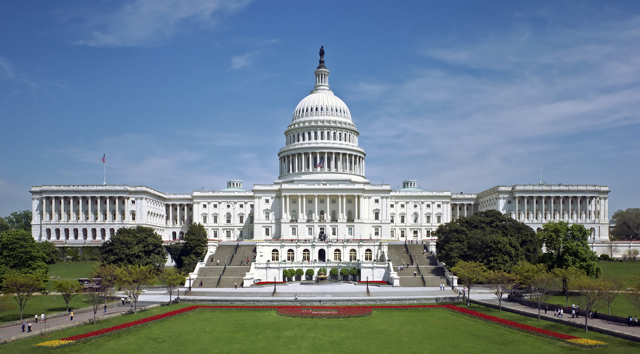States Take Action Opposing Federal Repeal of Net Neutrality
February 27, 2018
The FCC’s recently passed order to end Obama-era net neutrality — dubbed “Restoring Internet Freedom” — has been entered into the Federal Register. But many who oppose the move are just getting started on a variety of efforts intended to curtail or even block the Trump administration’s repeal of net neutrality. A group of 22 state attorneys general and the District of Columbia re-filed legal challenges that contend the FCC cannot make “arbitrary and capricious changes” to existing policies.
Reuters reports that, “the publication will trigger a 60-legislative-day deadline for Congress to vote on whether to overturn the FCC’s decision.” Democrats, who hold 49 seats in the Senate, need 51 votes to win a majority, because Vice President Mike Pence can break a tie. New York attorney general Eric Schneiderman, who leads the coalition, stated that, “repealing net neutrality will allow Internet service providers to put corporate profits over consumers by controlling what we see, do, and say online.”
Should the Democrats prevail in the Senate, they would still need to sway the House of Representatives “where Republicans hold a larger majority.”
Tech companies Alphabet, Facebook and others support the Democratic position, whereas AT&T, Comcast, Verizon and other ISPs are seen to be the winners of the net neutrality repeal. Although the FCC “seeks to pre-empt states from imposing their own net neutrality rules … governors in Vermont, Hawaii, Montana, New Jersey and New York have signed orders pledging to do business only with Internet providers that abide by net neutrality rules.”
TechCrunch calls the repeal of net neutrality based on “questionable motivations, is poorly researched, and removes critical protections against the wishes of millions of citizens.” It notes that a Congressional Review Act (CRA) would force “every lawmaker to weigh in publicly on the topic,” which could be handy ammunition for the 2018 mid-term elections.
Second, the lack of comments and public discussions as well as ignoring experts and elected officials’ concerns may be “a good basis for arguing that the way the FCC adopted this rule violated the Administrative Procedure Act, which prohibits ‘arbitrary and capricious’ rulemaking,” the tack taken by U.S. attorneys general as well as Mozilla, Vimeo and other Internet companies.
Third, states and cities are creating their own net neutrality laws, arguing that, “by striking down Title II, the statutory authority under which net neutrality was enforced nationwide, the FCC clipped its own wings, leaving it powerless to enforce its new rules or oppose state ones.”
VentureBeat reports that the Electronic Frontier Foundation “has some ideas on how state law can stand up to the FCC order,” noting that “community broadband can also ensure that net neutrality principles are enacted on a local level.” San Francisco is currently looking into building an open-access network that would require net neutrality guarantees from any ISP that wants to offer service.
Related:
As Protection Ends, Here’s One Way to Test for Net Neutrality, Wired, 2/22/18


No Comments Yet
You can be the first to comment!
Sorry, comments for this entry are closed at this time.